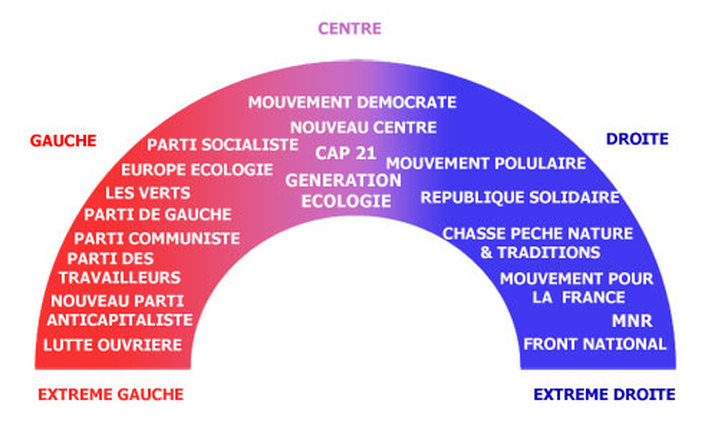Ghana's Mental Health Crisis: A Nation's Struggle With Limited Psychiatrists

Table of Contents
The Stark Reality: A Critical Shortage of Psychiatrists in Ghana
Ghana suffers from a profound shortage of psychiatrists. While precise figures vary, the psychiatrist-to-population ratio is drastically below the recommended levels seen in other nations. This deficiency is further exacerbated by an uneven distribution, with urban areas enjoying comparatively better access than rural communities, leaving vast swathes of the population underserved. The brain drain, where trained professionals seek opportunities abroad, further depletes the already limited pool of mental health experts.
- Psychiatrist-to-population ratio: Estimates suggest a ratio far below the WHO recommended standards, leaving millions without access to specialist care.
- Regional disparities: Northern and rural regions of Ghana often lack any psychiatrists at all, forcing individuals to travel vast distances for potentially life-saving treatment.
- Brain drain: The emigration of trained psychiatrists to countries offering better working conditions and salaries contributes significantly to the shortage.
The Impact of Stigma on Seeking Help and Access to Care
The cultural stigma surrounding mental illness in Ghana presents a significant barrier to accessing care. Many individuals and families view mental health conditions as a source of shame, leading to secrecy, self-medication, or reliance on traditional healers who may not have the necessary expertise. This stigma not only prevents people from seeking professional help but also impacts treatment adherence and overall recovery rates.
- Societal beliefs: Common misconceptions include attributing mental illness to witchcraft or spiritual causes, hindering the acceptance of evidence-based treatment.
- Impact on treatment: Stigma often results in delayed or interrupted treatment, leading to worsening symptoms and poorer outcomes.
- Family and community influence: Family members and community leaders can unintentionally perpetuate stigma by discouraging help-seeking behavior or isolating affected individuals.
Limited Resources and Infrastructure: Hindering Mental Healthcare Delivery
Inadequate funding for mental health services is a major impediment to effective care delivery. Ghana's mental health infrastructure is severely under-resourced, lacking sufficient facilities, equipment, and essential medications. Many existing facilities are overcrowded, understaffed, and lack the resources to provide quality care.
- Underfunded facilities: Many mental health institutions struggle with dilapidated buildings, a lack of essential supplies, and insufficient staff.
- Medication shortages: Access to essential psychotropic medications is often limited due to supply chain issues and affordability concerns.
- Inadequate infrastructure: Poor transportation networks further hinder access to care, particularly in rural areas.
Insufficient Training and Capacity Building for Mental Health Professionals
Addressing Ghana's mental health crisis demands a significant investment in training and capacity building for mental health professionals. While some training programs exist, their number and capacity are insufficient to meet the growing need. Specialized training programs focusing on the unique challenges and cultural contexts of Ghana are particularly crucial.
- Limited training programs: The number of training institutions and available places for psychiatrists, psychologists, and other mental health professionals is inadequate.
- Curriculum improvements: Training programs need to incorporate culturally appropriate approaches and address the specific mental health issues prevalent in Ghana.
- Continuing education: Opportunities for continuing education and professional development are vital to keeping mental health professionals up-to-date with the latest advancements.
The Devastating Consequences: Impact on Individuals and Society
Untreated mental illness has far-reaching consequences. Individuals experience lost productivity, social isolation, and an increased risk of suicide. On a societal level, the burden of mental illness leads to increased healthcare costs, reduced economic productivity, and social instability.
- Economic impact: The lost productivity and increased healthcare costs associated with untreated mental illness place a significant strain on Ghana's economy.
- Social consequences: Untreated mental illness can lead to family breakdown, social exclusion, and increased crime rates.
- Impact on families and communities: The burden of caring for individuals with untreated mental illness often falls disproportionately on families and communities.
Addressing Ghana's Mental Health Crisis: A Call to Action
Ghana's mental health crisis is a complex issue stemming from a critical shortage of psychiatrists, pervasive stigma, limited resources, and insufficient training. Addressing this crisis requires immediate and sustained action. We must prioritize increased funding for mental health services, implement initiatives to reduce stigma, and invest heavily in training and developing future generations of mental health professionals. Improving mental healthcare access in Ghana is paramount for the well-being of its citizens and the nation's overall progress.
You can make a difference. Consider donating to organizations supporting mental health initiatives in Ghana, volunteering your time to raise awareness, or advocating for policy changes that prioritize mental healthcare. Let's work together to tackle the shortage of psychiatrists in Ghana and build a healthier future for all.

Featured Posts
-
 Loi Sur Les Partis Politiques En Algerie Positions Du Pt Ffs Rcd Et Jil Jadid Face A La Reforme
May 03, 2025
Loi Sur Les Partis Politiques En Algerie Positions Du Pt Ffs Rcd Et Jil Jadid Face A La Reforme
May 03, 2025 -
 The Fall Of School Desegregation Orders One Case Many Questions
May 03, 2025
The Fall Of School Desegregation Orders One Case Many Questions
May 03, 2025 -
 Unexpected Defeat Abu Jinapors Assessment Of The Npps 2024 Election Performance
May 03, 2025
Unexpected Defeat Abu Jinapors Assessment Of The Npps 2024 Election Performance
May 03, 2025 -
 Us Officers Defiance Recalling The Fall Of Saigon 50 Years Later
May 03, 2025
Us Officers Defiance Recalling The Fall Of Saigon 50 Years Later
May 03, 2025 -
 Fbi Reassigns Agents From Kneeling Protest Photo Exclusive Details
May 03, 2025
Fbi Reassigns Agents From Kneeling Protest Photo Exclusive Details
May 03, 2025
